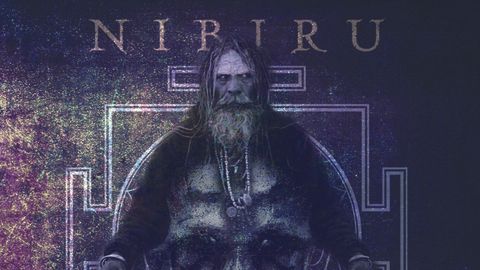It’s hard to say where Nibiru came from. Officially, the trio are based in Turin, Italy but their music sounds like it stems from far away dimensions as well as the muggy depths of some jungle, both untouched by civilisation. But no matter what dark and muddy hole they emerged from, their ascension with 2013’s Caosgon happened widely unnoticed by the broad public, which is why now, two albums later, they’ve released an extended version of their debut with a new artwork and master, plus an additional track from the original recording sessions. And you’d better fasten your seat belts for this wild ride.
From the very first second, Caosgon unleashes its magic; cowbells ring in the 18-minute opener, Invocation I – The Acid Skull, as if they were to warn you to make room for the crushing sludge riffs that are about to kick in. Ardath’s Enochian tribal chants summon spirits from far away worlds while there are synths wafting in the background. It doesn’t take long until you get completely lost in this eruption of sonic experimentation, textures and distortion.
Aster Argos is the pinnacle of the shaman-like chanting as the band slowly add layers of sound and the song builds up until it finally explodes in a burst of energy. The previously unreleased track, Invocation III – L.S.D, adds a new facet to this mainly improvised, amorphous hour of music with its up-tempodrumbeat while Ardath works himself up into ecstatic shouting.
But as trance-inducing as Caosgon often is, it’s hardly what you’d call an easy-listening record. It is an experiment in how far you can bend, twist and deconstruct heavy music. The songs demand your attention, they demand that you get involved with every fibre of your mind. Nibiru manage to sound both futuristic and ancient, with the new mastering only adding to the force and depth of these recordings. Although the more structured and focused follow-up albums, Netrayoni and Padmalotus, make it a bit easier to follow Nibiru’s path to previously undiscovered worlds, Caosgon is an important cornerstone of that very path.

